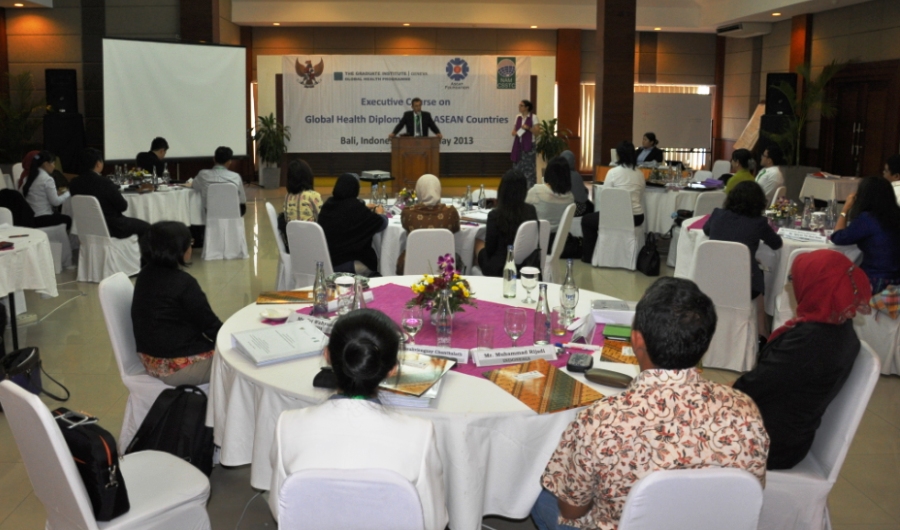|
Health
Most casualties in developing countries are caused by contagious disease, including zoonosis. Zoonosis caused severe loss in terms of socio-economy, security and human life.
 The world has recorded many kinds of pandemics, among others, severe acute respiratory syndrome (SARS), H1N1 caused by type-A influenza virus, Polio, Mers-COV and recently, Zika virus. Several diseases quickly spread due to lack of capability to prevent, detect and respond. It is important for all countries around the world to strengthen capability to prevent, detect and respond to global health threats, both biological or chemical threats. The world has recorded many kinds of pandemics, among others, severe acute respiratory syndrome (SARS), H1N1 caused by type-A influenza virus, Polio, Mers-COV and recently, Zika virus. Several diseases quickly spread due to lack of capability to prevent, detect and respond. It is important for all countries around the world to strengthen capability to prevent, detect and respond to global health threats, both biological or chemical threats.
In the concept of One Health, there is relevance between health and Sustainable Development Goals (SDGs). The definition of One Health is a collaborative effort of various sectors, mainly human health, animal and environment, whether it is at local, national and global levels to achieve optimal health. This approach is considered to be effective because zoonosis and antimicrobial resistance (AMR) controls require multi-sectoral collaboration, and it is not limited to health and agriculture, but also forestry, environment and education.
Integrated supervision to human and animal to handle Avian Influenza, Rabies and Anthrax pandemic, integrated epidemiological investigation against human and animal, integrated training for health and agricultural human resources are examples of what could be done by each country to control zoonosis.
In line with SDGs, capacity building to overcome global society health threat requires firm national health system. Several developing countries have health programmes, among others, expert dispatches to disadvantaged regions and border areas.
 The NAM CSSTC always stands ready to support capacity building on global health, proven by our active roles in organising
Inter-Governmental Meeting of Experts to Formulate Psychosocial Programme for Rehabilitation of Tsunami Survivors in 2005, Executive Training Course on Global Health Diplomacy for ASEAN Countries in 2010-2013 and NAM Workshop on ASEAN Public Health and Access to Medical Technologies in 2014. The NAM CSSTC always stands ready to support capacity building on global health, proven by our active roles in organising
Inter-Governmental Meeting of Experts to Formulate Psychosocial Programme for Rehabilitation of Tsunami Survivors in 2005, Executive Training Course on Global Health Diplomacy for ASEAN Countries in 2010-2013 and NAM Workshop on ASEAN Public Health and Access to Medical Technologies in 2014.
|

